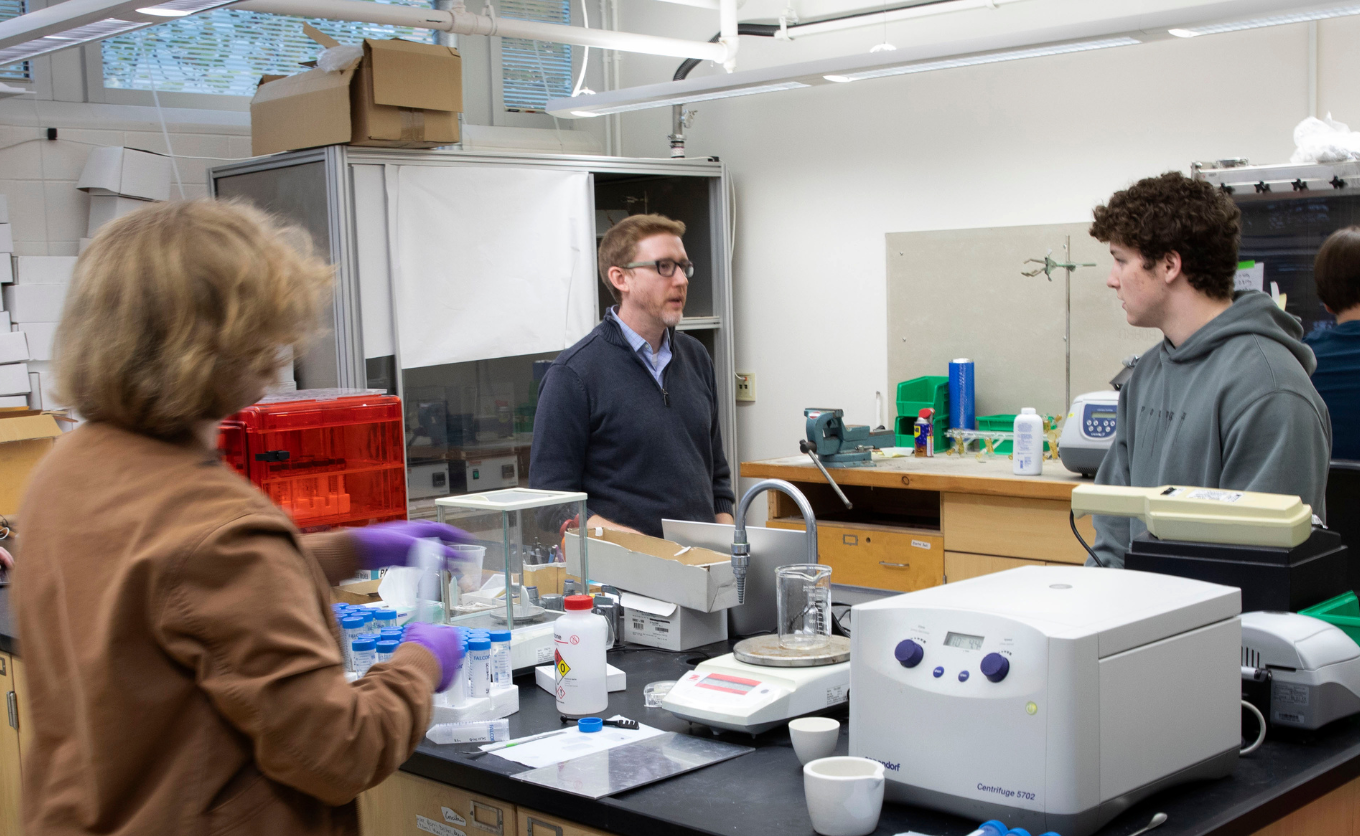UW-Whitewater
Associate Professor
Chemistry
 I am an Associate Professor at the University of Wisconsin–Whitewater, where I primarily teach general and inorganic chemistry. I earned undergraduate degrees in chemistry and music from Lawrence University and a Ph.D. in inorganic chemistry from Northwestern University, and later was an NSF Science, Engineering, and Education for Sustainability Postdoctoral Fellow at UW–Madison. Buoyed by astute and enthusiastic undergraduate researchers, my research lab at UWW investigates corrosion-resistant metal coatings, nanostructured thermoelectric materials, sustainable synthesis of inorganic and nanostructured compounds, bioactive glasses and ceramics, innovative new ways of blowing things up, and flux chemistry.
I am an Associate Professor at the University of Wisconsin–Whitewater, where I primarily teach general and inorganic chemistry. I earned undergraduate degrees in chemistry and music from Lawrence University and a Ph.D. in inorganic chemistry from Northwestern University, and later was an NSF Science, Engineering, and Education for Sustainability Postdoctoral Fellow at UW–Madison. Buoyed by astute and enthusiastic undergraduate researchers, my research lab at UWW investigates corrosion-resistant metal coatings, nanostructured thermoelectric materials, sustainable synthesis of inorganic and nanostructured compounds, bioactive glasses and ceramics, innovative new ways of blowing things up, and flux chemistry.
TEACHING AND LEARNING PHILOSOPHY
I am interested in transforming undergraduates into life-long scholars. I best achieve this through meaningful personal mentorships, in both one-on-one mentoring and group-based inquiry. Undergraduates, especially those at the beginning of their collegiate experience, require mentorship to understand how they can best succeed. Likewise, a close advising relationship allows the teacher-mentor to more personally address the student’s learning needs.
In every class, learning must be accomplished by the students. However, classes should be taught at suitable level in order for the students to thrive. Institutions must promote, support, and invest in innovative pedagogy, and allow for instructor experimentation and growth. Learning objectives should be clear, assessable, and periodically revisited or revised. New technology should be researched and leveraged whenever possible to facilitate in improved learning outcomes, student/teacher flexibility and efficiency, and to keep abreast of seismic developments on student and societal behaviors and trends.
Laboratory research is the living, evolving component of chemistry that is integral to undergraduate education. In lab, students experience firsthand that science can be “messy,” literally and figuratively. The laboratory curriculum should involve group-based exploration, providing an active learning environment. Whenever possible, modern research practices- including literature analysis and experimental design- should be embedded within the laboratory curriculum. Independent research projects will give the students the opportunity to express their own scientific creativity, and discover a meaningful place within the larger scientific community.
In teaching, it is absolutely vital to be honest, forthright, vulnerable, and human. Likewise, we must always appreciate the beautiful humanity of our students. The struggles they have faced, are facing, and will continue to face are real, profound, and likely unknown to me. Students deserve clear expectations, boundaries, and responsibilities, just as they deserve understanding, accommodation, and care. No two people learn or grow at the same rate. But all student-scholars have the capacity to be remarkable.
